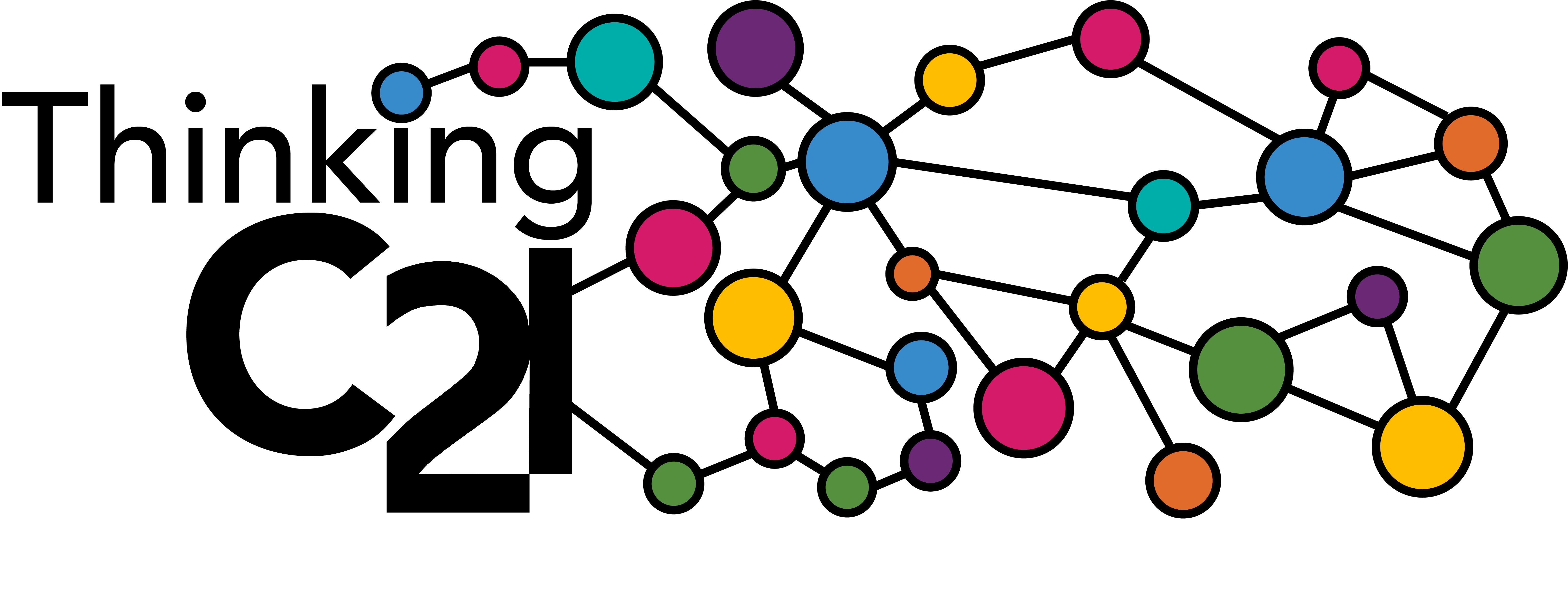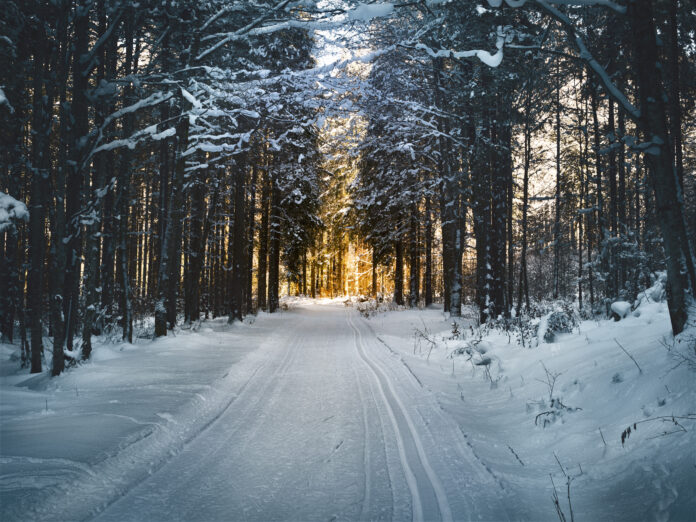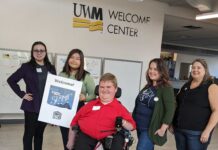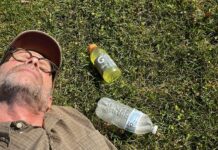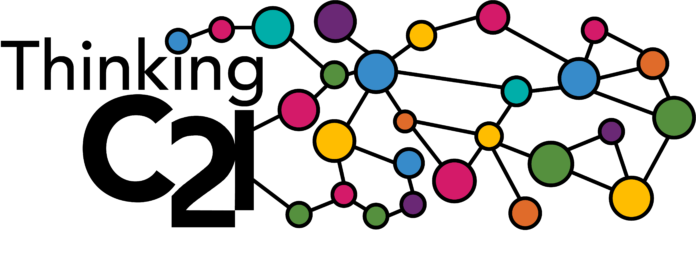By Randolph Marcum
In the nearly two years since Dr. Anne Basting took over directorship of the Center for 21st Century Studies (C21), many changes have taken place at the Center. From an emphasis on community scholarship, to a reimagining of the C21 space in Curtin Hall, and to appointing Jennifer Johung as lead faculty advisor and hiring of Deputy Director Nicole Welk-Joerger, the Center today is a radically different space than even a few years ago. To that end, much of the work of C21 this fall semester has consisted of reintroducing ourselves to the broader campus community. This important work took on many different forms, including hybrid events, community-led programming, and those focused on the needs of UWM graduate students. These events were held alongside our reinvigorated media output, such as our podcast series 6.5 Minutes With… and our weekly blog series on Thinking C21. Along the way, in every context, C21 has been primarily interested in offering support and sharing resources with both the UWM campus and the greater Milwaukee community.
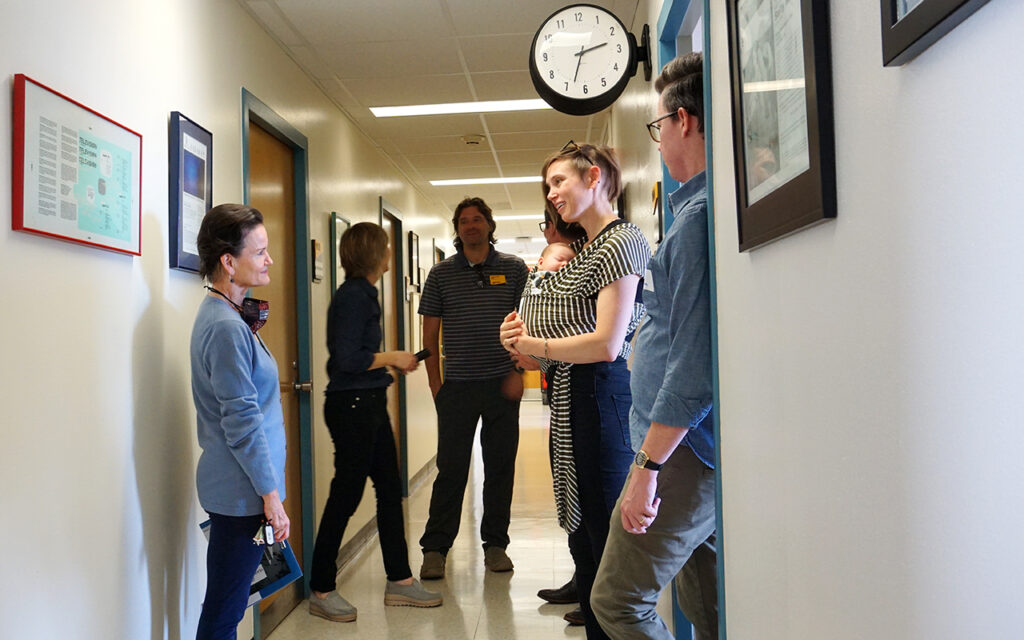
This important work of reintroducing ourselves to UWM began at the C21 Open House on September 16th. During this event, guests were invited to peruse the Lonely No More! art collection, including art from the Dak Project. Several of these pieces were later highlighted in a blog post written by Baishali Ghosh that called to attention how COVID-19 “radically called for changes in our daily conversation. Indeed, it challenged us [as artists] to delve into the complex social and epistemic practice of connecting and addressing isolation.” Other activities available included interactive polls of what people are interested hearing more about from the Center; the opening of the Digital Play Collaboratory and their streaming setup to the public; and a setup from C21 fellow Thomas Haigh of an Apple II computer and various nostalgic games. Refreshments were served, popcorn was available, and all told, over 50 people showed up to meet the new C21. The open house was an opportunity to return to campus; to connect and address communal isolation that has been felt at UWM for the last several years. It was, unquestionably, a success in this regard, and served as a springboard for a highly engaging and eventful fall semester.
The rest of September saw the last of our Lonely No More! Roundtable series, with a session on Healing Spaces paneled by Mishiikenh Vern Altiman, Elizabeth Drame, Adam Jessuel, and Kate Nelson, facilitated by Director Anne Basting. Together, they attempted to answer the question of how we might foster spaces for connection across campus. This event was the lead-in to the Lonely No More! Exhibition opening later that month, part of UWM’s Gallery Night. Along with exhibition spaces spread-out all over campus—including in the Golda Meir Library, the Mathis Gallery, and the Union Fireside Lounge—the LNM exhibition featured a range of photographs, prints, paintings, and films from 15 artists, all of them inspired by a C21 survey about loneliness and connection. The month closed out with a special four-hour workshop led by the Center for Artistic Activism called Unstoppable Voters, wherein participants learned how to merge art with political activism.
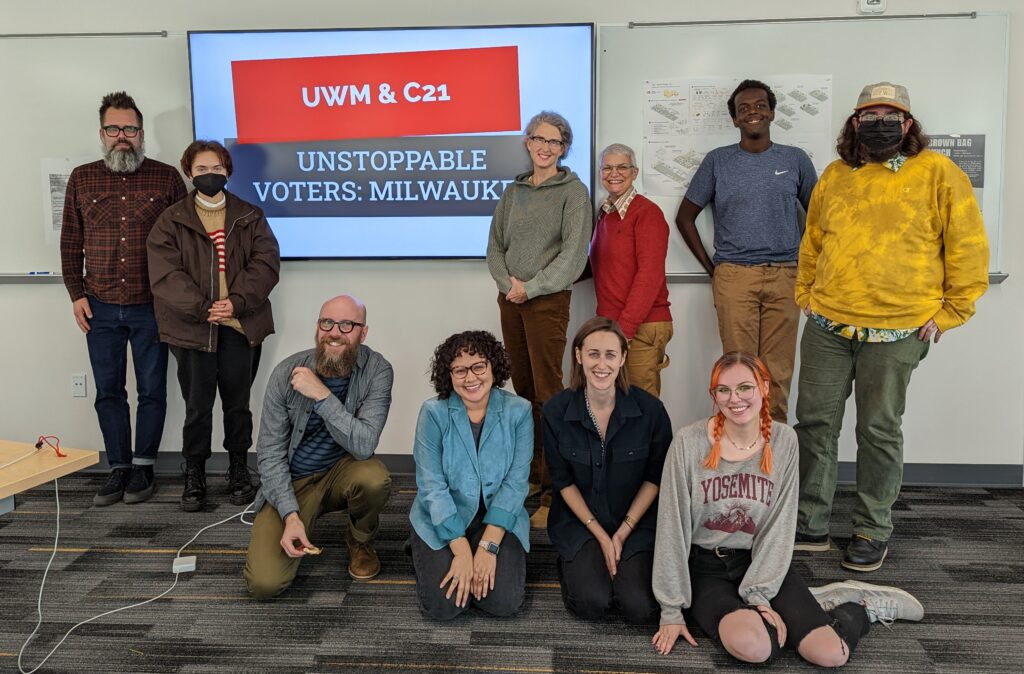
October saw at least one C21 co-sponsored event every week, including a C21 Conversation around how to apply for positions and projects at the Center and a Story Experience guest lecture workshop led by Brad Lichtenstein. Brad is an award-winning documentarian who has been making films since 1998, and he led a conversation on large scale story projects, how to build trust and establish consent with interviewees, establishing ground rules during story projects, and organizing/archiving story materials. A C21-hosted panel discussion on the Post-Roe Research Landscape was hosted on October 19th, which saw a lively and robust discussion of how humanities scholars can navigate university and political environments in the aftermath of the supreme court decision to overturn Roe v. Wade this past summer. October was also a month that saw a renewed emphasis on graduate student events hosted by C21. The three graduate fellows—myself , Joshua Rutherford, and Elaina Nelson—hosted a graduate student Meet and Play where we played In a Pickle, as well as a graduate student movie night where we watched the classic (for both good and bad reasons) 1987 Dario Argento film Opera.
November was also a month of graduate student outreach, with our first Drop by for a Donut! event. Graduate students could come and grab a bite to eat and shoot the breeze with each other; the over 25 graduate students who came by, grabbed a donut, and chatted showed the continuing need for low-stakes, graduate student-focused networking events here at UWM. The rest of our events in November also emphasized building communities: the Story Experience guest lecture workshop with Liz Anna Kozik celebrated the power of art to tell research stories, the Trauma-Informed Teaching Workshop shared strategies, resources, and support for helping both students and instructors dealing with trauma navigate a radically changed educational environment from even four years ago, and the C21 Conversations on Open Scholarship facilitated by Ann Hanlon centered on critical discussions about open access in university research, including what it could look like in the future. December saw another Donut Drop-In event for graduate students, and a C21 Conversations with Michelle Schoenecker and Anne Kissak on the funding landscape for humanities projects.
With the end of the semester, it is a quiet month for C21, but have no fear; more exciting programming is coming in the spring semester! This includes, most notably, a new series of roundtables centered on our theme Nourishing Trust; a blog series in connection with this theme; and various graduate student focused events on writing and, of course, donuts. More on these events in due time. Until then, I will end off with this: we hope that you have enjoyed the reintroduction. I can say, for certain, that we have all enjoyed meeting (or re-meeting) you. And until we meet again, have a safe, warm, and very happy holidays.
